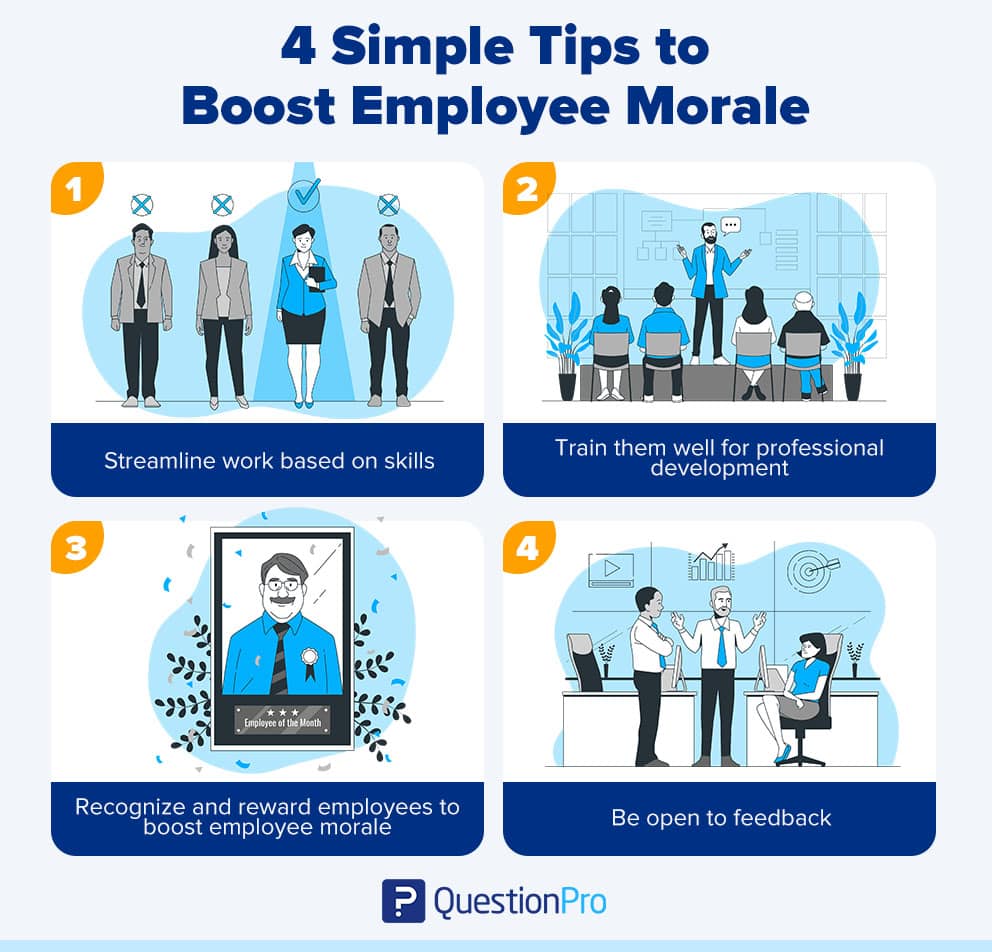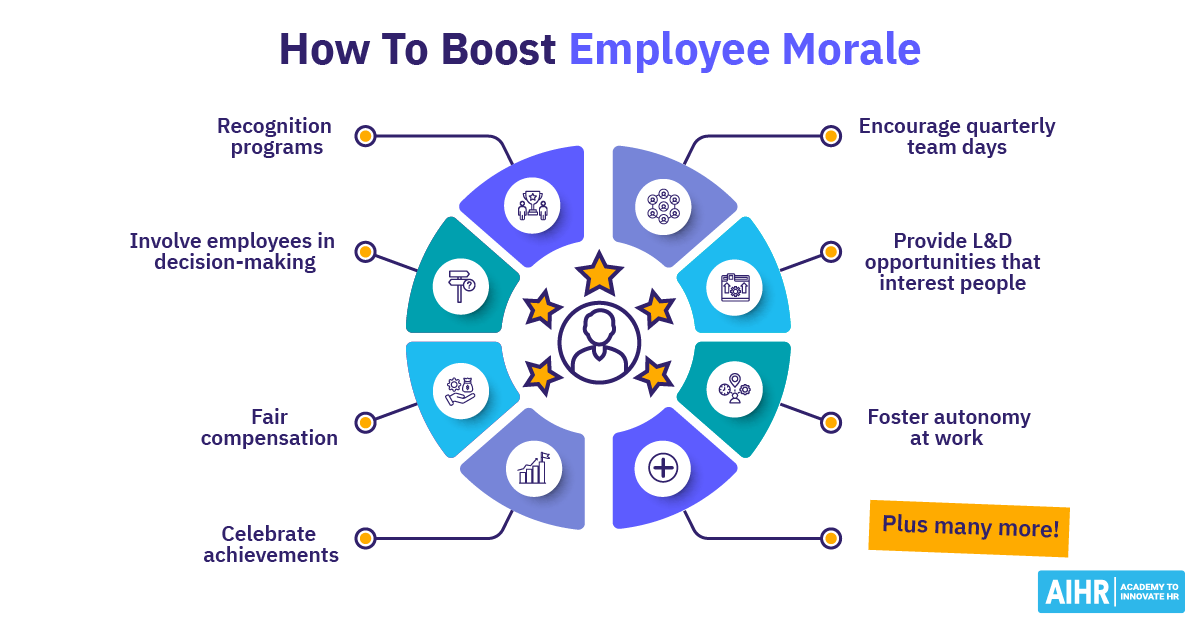Who Is Responsible For Employee Morale

Employee morale, a critical component of a thriving workplace, is often discussed but seldom fully understood in terms of ownership. Is it the sole responsibility of upper management, or does it extend to individual employees and their immediate supervisors? The answer, according to various studies and expert opinions, is multifaceted.
Understanding who truly owns employee morale is crucial because it directly impacts productivity, retention, and the overall success of any organization. Neglecting this aspect can lead to decreased efficiency, increased turnover rates, and a negative work environment. The question becomes: how do we accurately attribute responsibility for a happy and engaged workforce?
The Role of Leadership
Upper management undeniably plays a significant role in shaping the overall company culture, which directly impacts employee morale. Their decisions regarding compensation, benefits, and opportunities for growth set the tone for the entire organization. Transparent communication and a clear vision from leadership are also vital for fostering a sense of purpose and belonging among employees.
"A positive organizational culture starts at the top," states a recent report by Gallup, highlighting the importance of leadership in creating a supportive and engaging environment. When leaders prioritize employee well-being and demonstrate genuine care for their team, it creates a ripple effect throughout the company.
The Supervisor's Influence
While upper management sets the stage, immediate supervisors often have the most direct impact on day-to-day employee morale. These individuals are responsible for providing regular feedback, recognizing achievements, and addressing concerns in a timely and effective manner. A supportive and approachable supervisor can significantly boost an employee's sense of value and contribution.
A 2023 survey by SHRM (Society for Human Resource Management) found that employees who have a positive relationship with their direct supervisor are significantly more likely to report higher levels of job satisfaction. This highlights the importance of effective communication, mentorship, and a focus on individual employee needs at the supervisory level.
Individual Responsibility
However, attributing responsibility solely to leadership and supervisors overlooks the critical role of individual employees. Each person has a responsibility to contribute to a positive work environment by maintaining a professional attitude, collaborating effectively with colleagues, and proactively seeking solutions to challenges. A sense of personal ownership and accountability is crucial.
Engaged employees take initiative, offer constructive feedback, and actively participate in team activities. They understand that their actions contribute to the overall morale of the workplace. Creating a positive environment is not a passive endeavor; it requires active participation from everyone.
The Interconnectedness of Morale
Ultimately, employee morale is a shared responsibility, a complex interplay between leadership, supervisors, and individual employees. Each group contributes to the overall ecosystem of the workplace.
"It's a three-legged stool," explains Dr. Anya Sharma, a leading organizational psychologist. "If one leg is weak, the entire structure becomes unstable."
Companies that recognize and promote this shared responsibility are more likely to cultivate a thriving and productive workforce. This requires open communication channels, a culture of feedback, and a commitment to fostering a positive and inclusive work environment. Ignoring any one of these elements can negatively impact overall morale.
The Impact of Neglecting Morale
The consequences of neglecting employee morale can be severe. Increased absenteeism, decreased productivity, and higher turnover rates are just a few of the potential ramifications. In today's competitive job market, companies that fail to prioritize employee well-being risk losing valuable talent to organizations that offer a more supportive and engaging work environment.
Creating a positive culture and having transparent leadership is essential for employee retention. Companies also must be willing to invest in training programs that equip supervisors with the skills they need to effectively manage and motivate their teams.
In conclusion, attributing responsibility for employee morale is not about assigning blame but rather about understanding the interconnected roles that contribute to a positive and productive work environment. It requires a commitment from leadership, supervisors, and individual employees to foster a culture of respect, communication, and shared purpose. Only then can organizations truly unlock the full potential of their workforce.


















